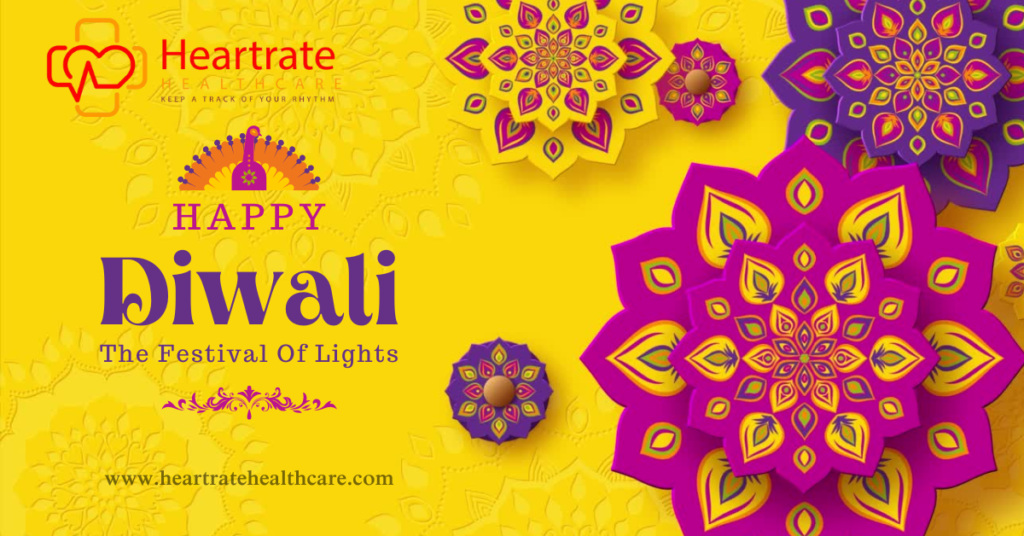Diwali, also known as Deepavali, is one of the most widely celebrated festivals in India and among Indian communities worldwide. Known as the “Festival of Lights,” it symbolizes the triumph of light over darkness, good over evil, and knowledge over ignorance. Diwali holds a special place in the hearts of millions and is celebrated with great enthusiasm, joy, and devotion.
Historical and Cultural Significance
The origins of Diwali can be traced back to ancient Indian traditions, mythology, and religious texts. Different regions in India have varied stories associated with the festival:
Ramayana: In North India, Diwali commemorates the return of Lord Rama, his wife Sita, and brother Lakshmana to Ayodhya after a 14-year exile and victory over the demon king Ravana. The people of Ayodhya welcomed them by lighting oil lamps, symbolizing the end of darkness and evil.
Mahabharata: Another narrative links Diwali to the Pandavas’ return after 12 years of exile. The people celebrated by lighting lamps across the kingdom, marking a new beginning.
Goddess Lakshmi: In some traditions, Diwali is dedicated to the worship of Goddess Lakshmi, the goddess of wealth and prosperity. People clean their homes, decorate with rangoli, and light lamps to welcome Lakshmi into their homes.
Jainism and Sikhism: Diwali is also significant in Jainism, marking the day Lord Mahavira attained Nirvana. For Sikhs, it celebrates the release of Guru Hargobind Ji and 52 other princes from captivity in 1619.
Five Days of Diwali
Diwali is not a one-day celebration; it typically spans five days, each with its own customs and rituals:
Dhanteras: The first day is dedicated to wealth and prosperity. People buy new utensils, jewelry, or household items, signifying good luck and prosperity. It’s also a day to worship Dhanvantari, the god of health.
Naraka Chaturdashi (Choti Diwali): The second day, also known as Choti Diwali, commemorates Lord Krishna’s victory over the demon Narakasura. People clean their homes and prepare for the main day of Diwali.
Diwali (Main Day): The third day is the most significant. People perform Lakshmi Puja in the evening, light diyas (oil lamps) and candles around their homes, decorate with rangoli, and burst firecrackers to celebrate.
Govardhan Puja: The fourth day, celebrated mainly in North India, is dedicated to Lord Krishna lifting Mount Govardhan to protect his devotees from the wrath of Indra, the god of rain.
Bhai Dooj: The fifth day celebrates the bond between brothers and sisters. Sisters pray for their brothers’ well-being, and in return, brothers vow to protect them.
Traditions and Celebrations
Diwali is celebrated with various activities and customs, which differ regionally but share a common theme of joy, community, and devotion. Homes are cleaned and decorated with vibrant rangoli patterns, oil lamps, and flowers. People dress in new clothes, exchange sweets, and enjoy elaborate feasts. Fireworks and firecrackers are commonly set off, filling the night sky with light and sound.
Gifting is also a big part of Diwali, with family members, friends, and colleagues exchanging sweets, dry fruits, and other gifts as a gesture of goodwill.
The Spiritual Meaning of Diwali
Beyond the vibrant lights, fireworks, and festivities, Diwali holds a deep spiritual meaning. The festival symbolizes the journey towards inner enlightenment and self-discovery. Lighting lamps represents the removal of darkness (ignorance) and the arrival of light (knowledge). Many people use this time to reflect, make new resolutions, and start fresh.
Diwali also promotes the values of unity, sharing, and compassion. By bringing people together and encouraging them to let go of past grievances, it fosters harmony and strengthens social bonds.
Conclusion
Diwali is more than a festival; it’s a celebration of life, light, and hope. It reminds us of the importance of good values, the joy of giving, and the pursuit of knowledge. Celebrated with fervor across India and by Indian communities globally, Diwali is a time for family gatherings, cultural traditions, and spiritual reflection. As homes and cities light up, Diwali rekindles the spirit of positivity and harmony, offering a reminder that light will always conquer darkness.
#HappyDiwali, #Diwali2024, #FestivalOfLights, #DiwaliCelebration, #DiwaliVibes, #DiwaliFestivities, #DiwaliDecor, #DiyasAndLights, #DiwaliWishes, #LightUpYourLife, #FestivalSeason, #TraditionalDiwali, #IndianFestival, #CelebrateDiwali, #RangoliDesigns, #DiwaliGreetings, #DiwaliGifts, #GoodOverEvil, #DiwaliJoy, #DiwaliSpecial






